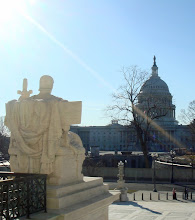Week 10: The Fourth Estate
On Saturday, the tenth of June, 1721, an article entitled, “Reflections upon Libelling,” was published in “The London Journal,” a political periodical of the day. In the article, Thomas Gordon, writing under the nom de plume Cato, opined on a free press. He recognized that, in a free society, there are good and bad actors in the press.
“In countries where there is no liberty,” Cato writes, “there can be no ill effects of it. No body is punished at Constantinople for libelling. Nor is there any distinction there between the liberty of the press, and the licentiousness of the press; a distinction ever to be observed by honest men and freemen.”
Cato was saying that liberty and a free press are symbiotic. For one to exist, the other must, as well. Approximately 66 years later, Edmund Burke would use the term the “Fourth Estate” in Parliament to describe the press. This begs the question: what are the first three estates?
In pre-revolutionary France, the First Estate referred to the clergy, the Second Estate to the nobility, and the Third Estate to the commoners and peasantry. But enough of the history of the French caste system. Let us return to American and to the Fourth Estate.
In ratifying the Constitution, delegates to the convention had to make certain concessions to gain the necessary votes for passage, namely agreeing to a Bill of Rights. Framers of the Constitution had not considered such an enumeration of rights necessary, as the very structure of the Constitution and its inherent limitations on government implied the preservation of citizens’ rights and the protection of those rights from government. Nevertheless, the memories of trampled rights were still fresh for the delegates to the convention and to many citizens in their respective states. The adoption of a Bill of Rights secured the ratification of the Constitution. The first among the amendments that constituted the Bill of Rights reads, “Congress shall make no law respecting an establishment of religion, or prohibiting the free exercise thereof; or abridging the freedom of speech, or of the press; or the right of the people peaceably to assemble, and to petition the Government for a redress of grievances.” This being the First Amendment is not accidental. As it is the bedrock upon which the other amendments are built, its primacy among the amendments is intentional.
Section 230 of the 1996 Communications Decency Act reads, “No provider or user of an interactive computer service shall be treated as the publisher or speaker of any information provided by another information content provider.” As part of the act, providers (e.g., Facebook and Twitter) are immune from prosecution for libel. In other words, in exchange for such immunity, online providers essentially function as a public forum.
A violation of this arrangement occurred with Facebook and Twitter censoring of Washington Post reporting about shady deals among former Vice President Biden, his son, and oligarchs in foreign countries, including countries hostile to the United States of America. Because of the quid pro quo arrangements between online providers and the government, as described in the Week 26 posting on censorship, moves like those from Facebook and Twitter are tantamount to violations of the First Amendment.
The three estates of clergy, nobility and commoners have a very different meaning in American than in the rest of the world. Clergy are not established functionaries of the state in America. Nobility is anathema to the American psyche. Commoners describes each and every citizen. Regrettably, our unique view of these estates is imperiled. Clergy, or more broadly religion, is under attack. Nobility has been, for many years, establishing itself in the sense of a political aristocracy, which has as its serfs the “average American,” a term countenanced by the political class, but a term that should be repugnant to every citizen.
This leaves us with the Fourth Estate, a free press. As a result of Section 230, this freedom was to be protected. The actions of Facebook and Twitter, vis-à-vis the Washington Post articles, are bastardizing the Fourth Estate, just as the first three estates have been in recent years.
With a mere 16 days until the election, we must be vigilant in seeking out information and the truth, a chore made more difficult by those who control some much of the information we consume. Let us devote the next two weeks to digging for the truth – about all candidates – no matter how difficult the technocrats make it.

No comments:
Post a Comment